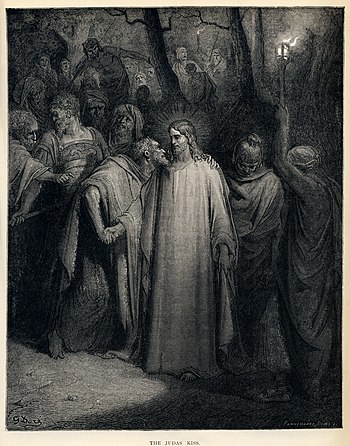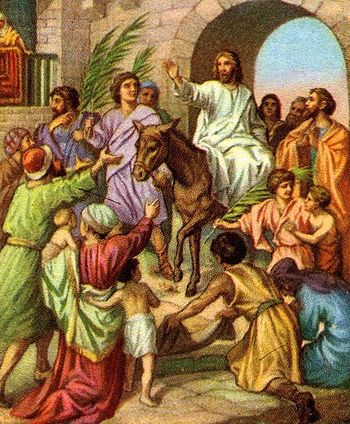Jesus was taken away to be crucified, and there were two criminals taken with him to be put to death, fulfilling Isaiah 53:12, which said he would be numbered with transgressors. Luke says that they came to a place known as the skull. It is also known as Golgatha which comes from an Aramaic word for skull. There, they crucified Him and the criminals with one on each side of Him. Jesus said “Father forgive them, for they know not what they do.”
One prisoner began to mock as well, but the other rebuked him and asked Jesus to remember him when He came into His kingdom. Jesus told him that this day he would be with Him in paradise (verse 43). Jesus, as we saw in other passages, did have the authority to forgive sins, and He exercised it there.
Joseph of Arimathea was a member of the Sanhedrin council who had not consented to their decision to railroad the Lord. Luke says that he was a good and righteous man, and was looking for the kingdom. He got custody of the body of Jesus from Pilate, and wrapped it in a linen shroud. Then he placed it in a tomb that was cut in stone and had never been used for burial. The women prepared ointment and spices. And then they rested on the Sabbath rested as commanded.
The day that Jesus rose, two of His disciples were traveling to the village of Emmaus. One was named Cleopas, but we do not know the name of the other. We are told in verse 16 that “their eyes were kept from recognizing him” when Jesus drew near. When He asks them about the conversation they are having, the two men proceed to tell him about Jesus of Nazareth. Jesus gave them a mild rebuke for being slow to believe what the prophets had spoken. He then interpreted Scriptures from Moses and the prophets concerning the Christ. The revelation of Himself to these two disciples would appear to serve one purpose – that of a proper eyewitness account.
/Bob’s boy
Bible Reading Schedule for this month
Click links below to read or listen to audio of one of this week’s chapters in Colossians and Luke
Luke 22, Luke 23, Luke 24, Acts 1, Acts 2
___________________
some images © V. Gilbert & Arlisle F. Beers
Please visit this site’s menu item “The Author’s Books” for info on the author’s books, website, and Facebook page.
All of my comments in this blog are solely my responsibility. When reading any commentary, you should always refer first to the scripture, which is God’s unchanging and unfailing word.








